What is the typical course of study for the early secondary years? [Ages 11-13]
A typical course of study can really help you create a solid home education plan for the early secondary years, which is called Junior High or Middle School in America. Planning now for home ed courses for 11 to 13-year-olds can clarify your goals during this tricky phase that often feels like an academic wilderness! Kids are transitioning from childhood but aren’t quite the young adults they will become in the later high school years.

Their bodies are changing so fast that it can be hard for them to keep up, often opting for more sleep and snacks over other activities. Some might wish to just skip the tween and early teen years, as if they’re merely a bad dream. However, despite the challenges, these years can provide valuable academic experiences and set the stage for future success in high school and beyond!
Ensure a Solid Learning Foundation for Home Ed for 11 to 13-year-olds
Early secondary years are often when undiagnosed learning differences or processing issues come to light. If your student struggles with the basics like English or Math, it’s important to address those weaknesses, especially in areas like reading comprehension and speed, as well as math skills, which include mastering addition, subtraction, multiplication, and division. Our Pre-IGCSE Maths, English Grammar & Writing, and General Science are great opportunities to ensure there aren’t any gaps in knowledge and to learn how to best navigate learning differences. Setting a solid foundation for students and families to build upon in the coming years.
Recommended Courses
Understanding Arise Home Education’s Approach to English Exam Prep.
Uniquely, our goal at Arise Home Education is to equip teens for an exam, but not to sacrifice the Christ-centred approach to education.
Arise Home Education offers excellent preparation courses for the Cambridge iGCSE English Language exam, which lays a strong foundation for Literature study and advanced study of English. They do so in a Christ-centred way, with world-class literature at its very heart. Read more.
Laying the Foundation for iGCSE Maths
What are the key skills required for starting iGCSE Maths? Knowing that your teen is ready for the step up to iGCSE maths can be challenging, and knowing how best to prepare a younger teen to be ready when the time is right can be challenging.
As a home educator, I have found it difficult to find a good curriculum for my younger teens. There are many good maths curricula for primary-aged children. But the UK’s early high school curriculum is harder to find. Therefore, we have worked hard to create a maths curriculum to prepare students for iGCSE maths.
What to Focus on in these Early Secondary Years (Ages 11-13)
A typical course of study for 11 to 13-year-olds will emphasize the Core Four subjects, along with Electives and Extracurricular activities. This age group is typically defined as 7th & 8th grade in America, S1/S2 in Scotland, and Year 8/9 in England.
The term ‘Core Four’ is an American term, but it also suits British academics for this age group well.
Concentrate your efforts on these Core Four, whether you intend to pursue the US high school Qualification model or the UK Exam Model:
- English: Ensure your student has a good grasp of English grammar and writing mechanics. Can they construct simple sentences, paragraphs, and a three-paragraph essay on a given topic? By age 12-13, they should be able to write a clear, organized essay. It’s also important for them to understand basic grammar and spelling while expanding their vocabulary through more challenging reading.
- Maths: Strengthen their understanding of math functions, especially multiplication, division, fractions, decimals, and percentages. By age 13, students should be ready to dive into pre-Algebra/Algebra.
- Science: Students should build a solid foundation in natural sciences. Early Secondary science for 11-13 year olds should provide a broad overview of Biology, Chemistry, Physics, and Astronomy. Each subject should include an introduction to lab reports and have hands-on experience conducting experiments. They should also be familiar with the Scientific Method.
- Social Studies: It’s essential they have a solid understanding of Geography on which to build in the coming years of additional social studies and humanities courses. Students also should gain a wide-ranging understanding of History, covering significant periods such as Ancient, Medieval, Renaissance, and Modern times in a general manner, along with a focus on history for their home/native country. A basic timeline can be very helpful. This type of historical overview can also be tied into their writing and literature studies for a truly rich learning experience.
Recommended Courses
Home Ed Electives and Extra-Curricular Activities for 11-13 year olds
Foreign Language: Early secondary is an excellent time to introduce a foreign language if you haven’t done so yet! Studying a foreign language helps reinforce English grammar, expands vocabulary, and presents a fun challenge to decode (translate) from one language to another, making it a great way to develop critical thinking skills as your teen practices executive functioning skills.
Arise Home Education options include Scottish Gaelic, German, and Hebrew. Our courses are unique, as some are introductory and others are GCSE level. Regardless, students can earn US High School credits for their transcript while they’re still in middle school because our courses meet the criteria required for US high school transcripts (generally S3-S6 or Year 10-13). So, whether it is KS4 level or GCSE Prep, they are all eligible for US Qualifications.
Products by Category
-
Beginning French
£360.00 -
Beginning German
£360.00 -
Beginning Spanish (KS3/Pre-iGCSE)
£360.00 -
Biblical Hebrew Year 1 (GCSE Prep)
£360.00 -
Electives and Enrichment Live Lesson Sample Bundle
£0.00 -
High School Spanish 1
£360.00 -
Intermediate German
£360.00 -
Latin 1 using Latin Form 1®
£360.00 -
Latin A using Prima Latina®
£185.00
Logic: Let’s face it, many tweens love to debate but aren’t always skilled at it. Teaching them logic will help them identify fallacies and construct sound arguments. Strong writers are often strong thinkers, which will enhance their English skills; similarly, math is rooted in symbolic logic, improving their math abilities. Informal logic is ideal for nurturing their developing minds.
When coupled with apologetics for teens 13+, the Arise course allows a great opportunity for students to learn how to respectfully argue different viewpoints as well as wrestle with current hot topics from a Christian apologetics perspective.
Recommended Course Progression
Physical Education: Students can earn ½ credit each year through physical education. Regular exercise can help balance your teen’s emotions, energy levels, and nutrition. Our tutor, Shannan Swindler, has written a PE and health curriculum for home-educated students. If your student is involved in sports clubs or other physical, outdoor activities, these may be eligible for US high school credit.
Music: A general introduction to music, including music theory, voice lessons, or instrument instruction, will enrich their homeschool experience (and their lives!). If your student is taking private lessons, these may be eligible for US high school credit.
Art/Humanities: Provide your tweens and teens with a foundational understanding of Art and Design, Photography, or Speech and Drama, while ensuring they are learning from a Christ-centered perspective, and give opportunity for students to learn how to use their creative talents to express themselves in a God-honouring way.
Recommended Classes
-
High School Art and Design Year 1
£360.00 -
DSLR Photography Year 1
£360.00 -
Speech & Drama
£360.00 -
FORM Physical Education & Health Curriculum
£155.00
Bible/Apologetics: Students should gain a solid grasp of the Old and New Testaments, along with a foundation in Apologetics to help them defend their beliefs. OurCambridge O-Level Biblical Studies course and Apologetics, Logic & Debate (for ages 13+) classes are great opportunities to understand their Bible and their faith in a deeper, more impactful way.
Bible & Christian Living Courses
Life and Computer Skills: Basic knowledge of Computer Information Systems, PowerPoint, video editing, internet safety, and accountability is essential. Our live online classes integrate the basics for all students. A fun introductory life skills class is Basic Home Cookery, where they will learn kitchen basics for cooking, recipe reading, nutrition, and the importance of good hygiene while cooking and cleaning up.
Other Electives or Enrichment Courses: Electives for students ages 11-13 should be varied, introducing students to different opportunities and challenges. At this stage, students transition from experience to interest to strategy, particularly if they want to pursue their interests and are motivated to invest in them. Basic Home Cookery, Speech & Drama, or even learning vocational skills like bicycle maintenance or rock climbing, can build confidence and lead to exciting opportunities for the future.
Fun Elective Courses
Community Service is a wonderful avenue for tweens to look beyond themselves and understand the needs of others. Find a local charity, get involved in ministry at church, or care homes. Doing this as a family is an enriching opportunity to continue learning together, supporting your community, and making great memories.
Books: Naturally, reading great literature will broaden your students’ perspectives, enhance their vocabulary, and foster empathy for others. Aside from textbooks, create a log for students to record all the books (leisure reading, educational, or devotional) they read each year. You will quickly realise what they are learning about, what their interests are, and if it can be added to their transcript as part of their coursework.
At Arise, we encourage good record-keeping beginning in the early secondary years. Because everything counts – even if it doesn’t look like it right now. Over the next 4 to 6 years, you will see patterns and subjects of learning emerge that will serve your student well as their transcript becomes more organised and complete
Interested in learning more about credits, transcripts? Our Home Ed. Success in the UK parents’ course is all you need to understand and create your own US high school transcript, which can be used as proof of education for UK university admission.
Recommended for Parents
-
The Complete Self-Paced Course: USA Diploma and Transcript Model for HE Success in The UK
Original price was: £105.00.£97.00Current price is: £97.00. -
Everything Counts! UK Home Education Guide & Planner for High School
£15.15
Additional Home Ed Resources for 11-13 year olds
Homeschooling is a fantastic opportunity right now, with more options for 11 to 13-year-olds in home ed than ever before! Explore our live online, interactive classes led by Christian educators who are experts in their field within a global learning community. Your teens can have an outstanding education and thrive in an online learning community!
Are Arise Live Classes A Good Fit For Your Teen?
Grab a live lesson bundle and learn about the course, the tutor, and the weekly homework load.

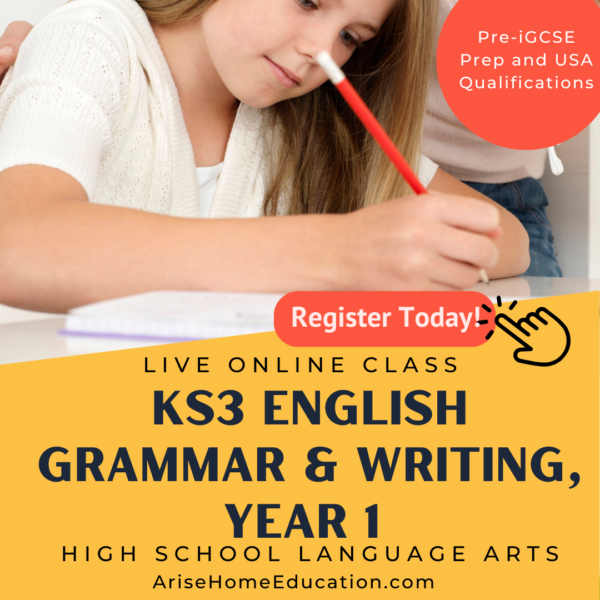
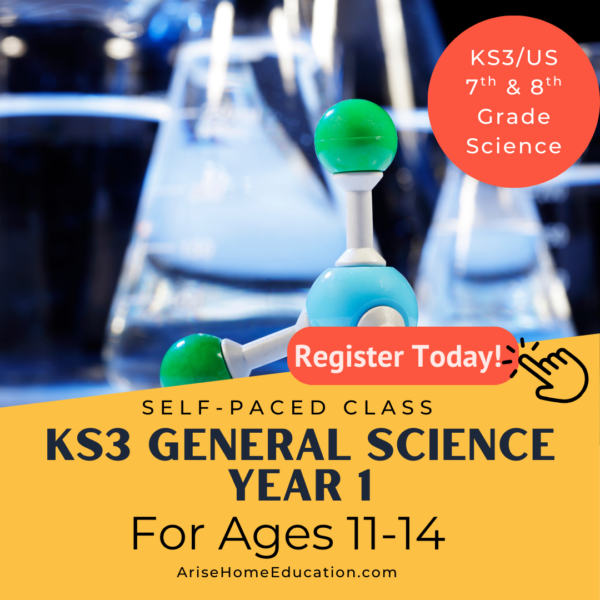
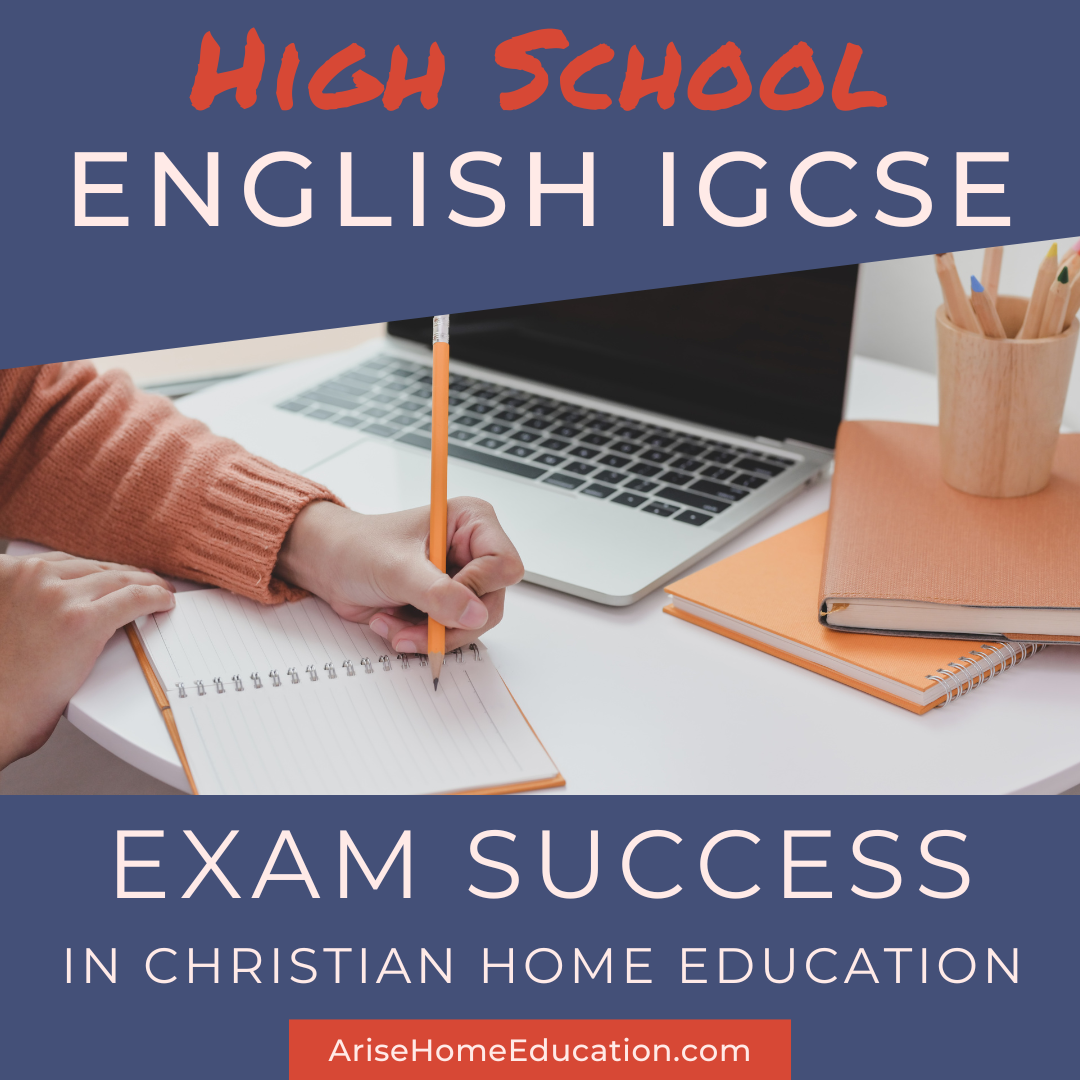








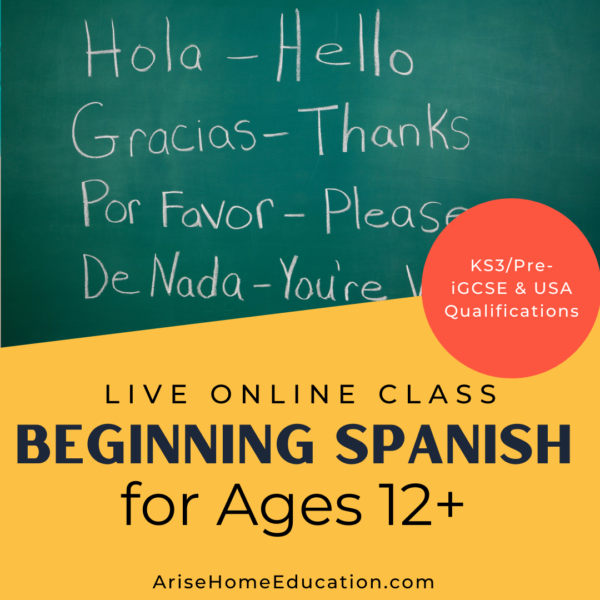
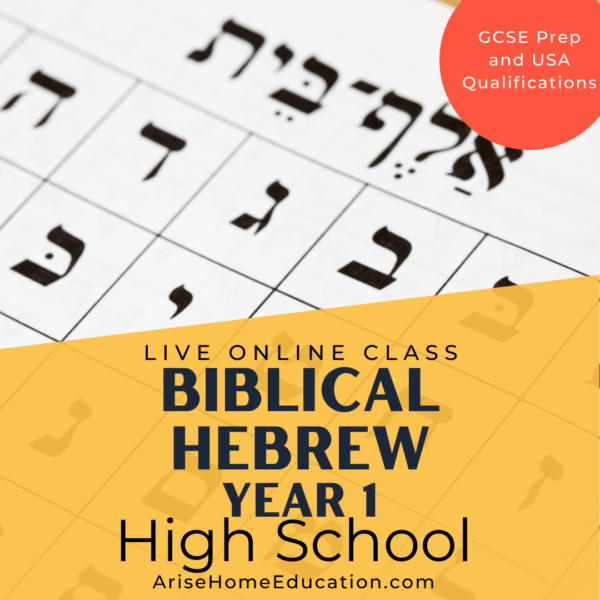
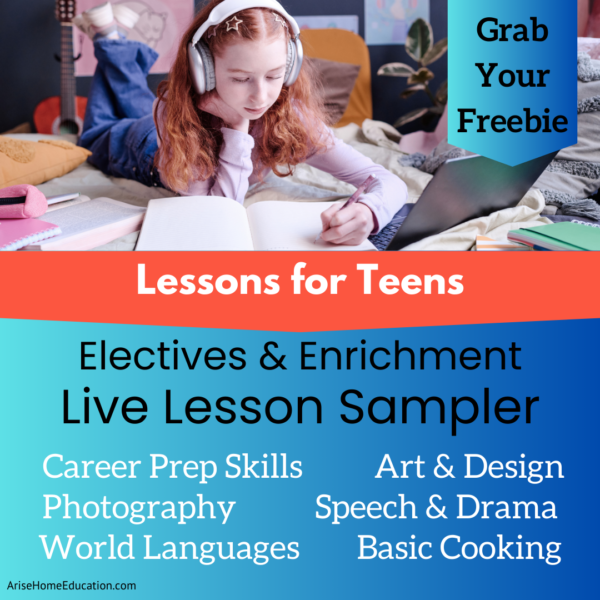


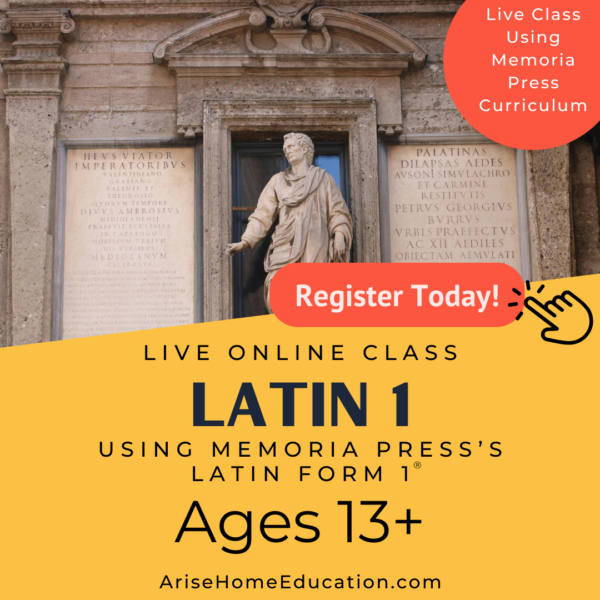
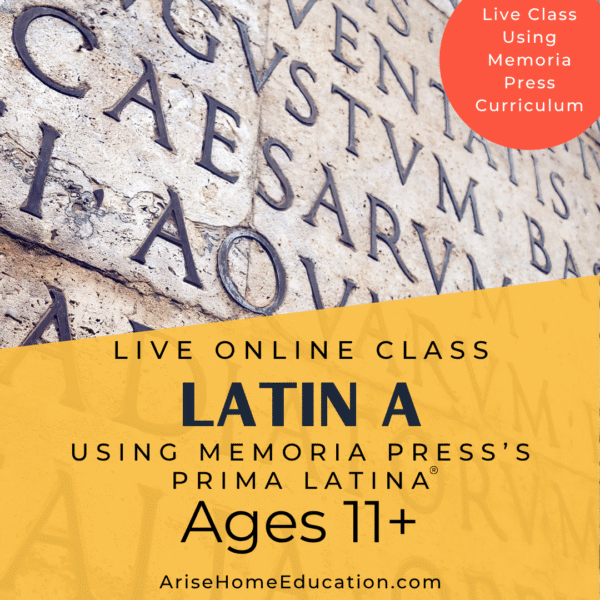





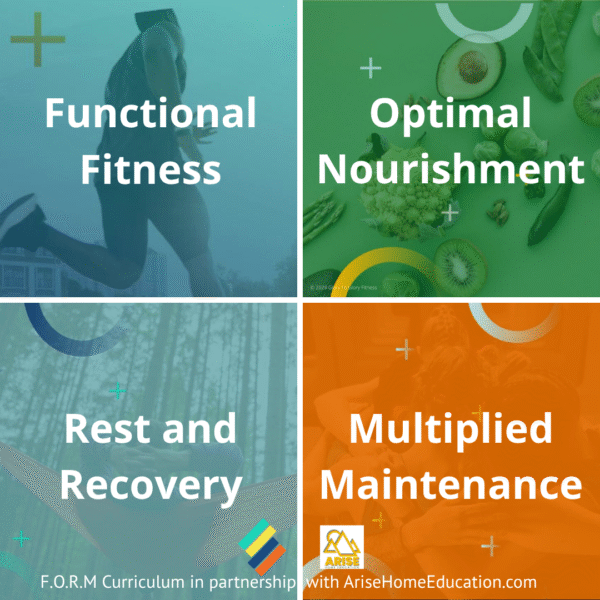
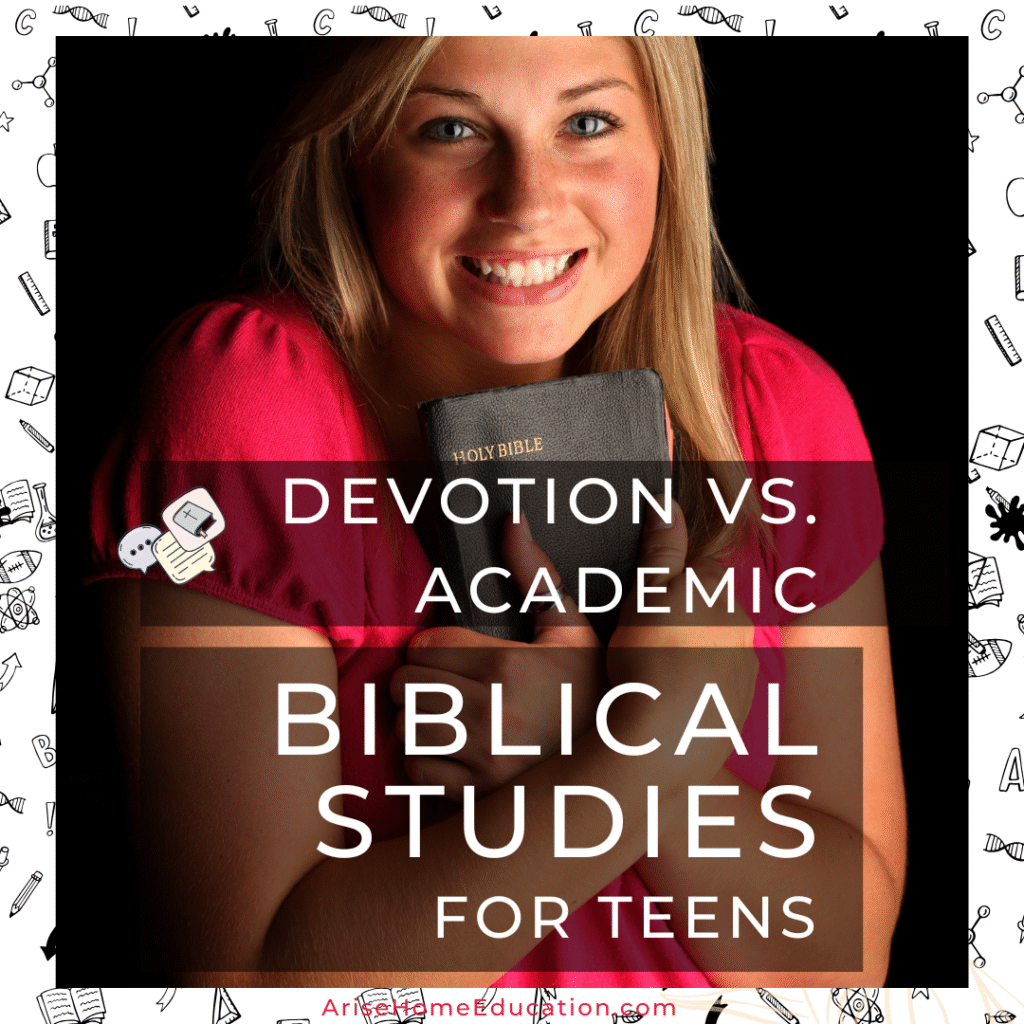
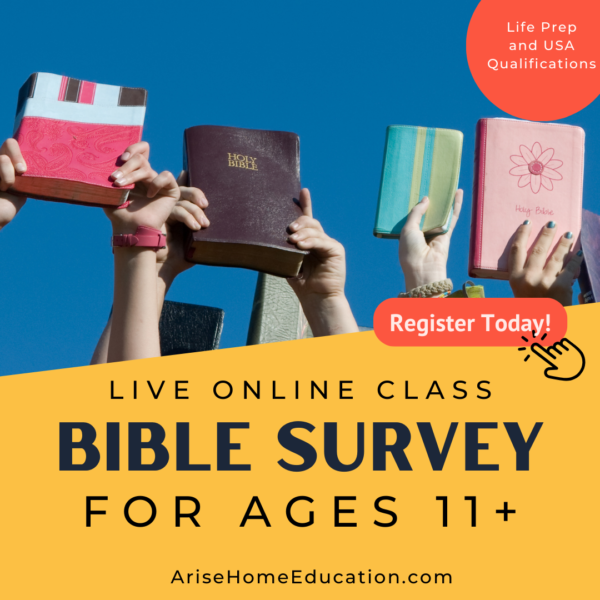
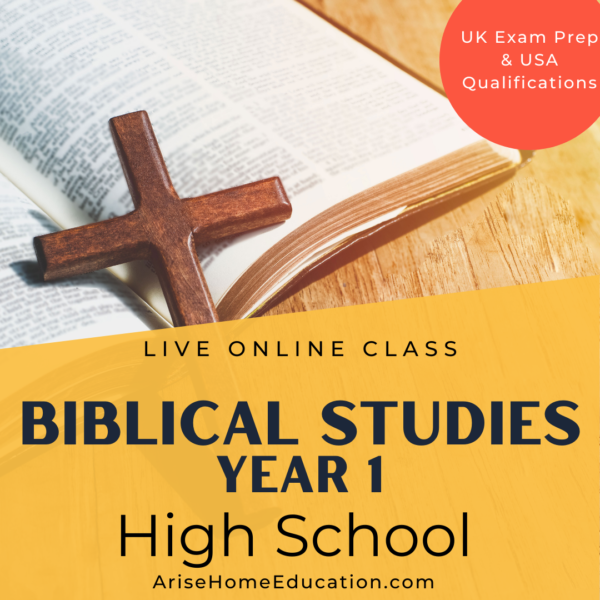
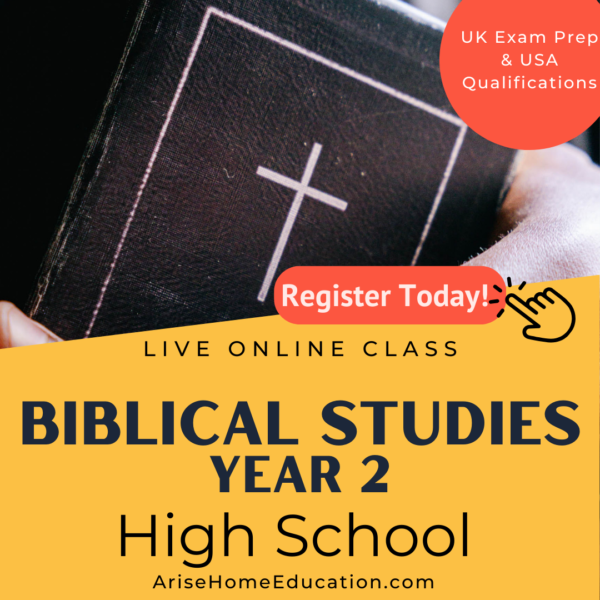


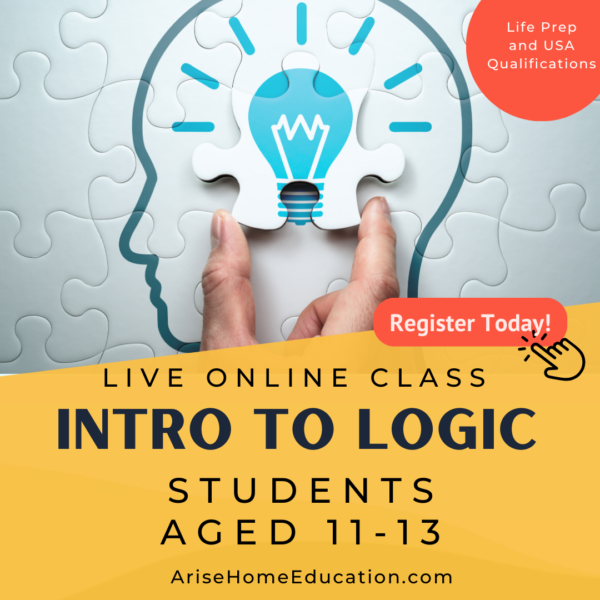
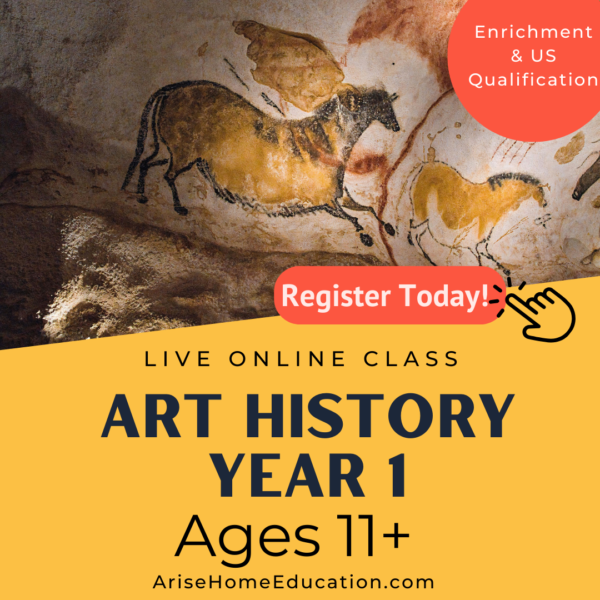


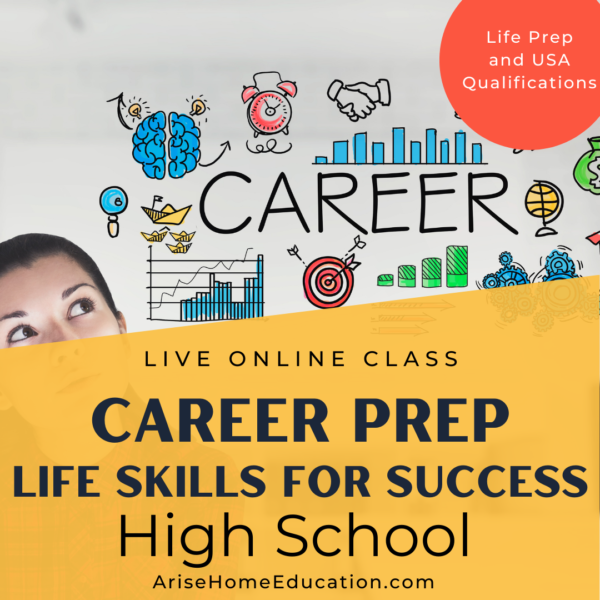
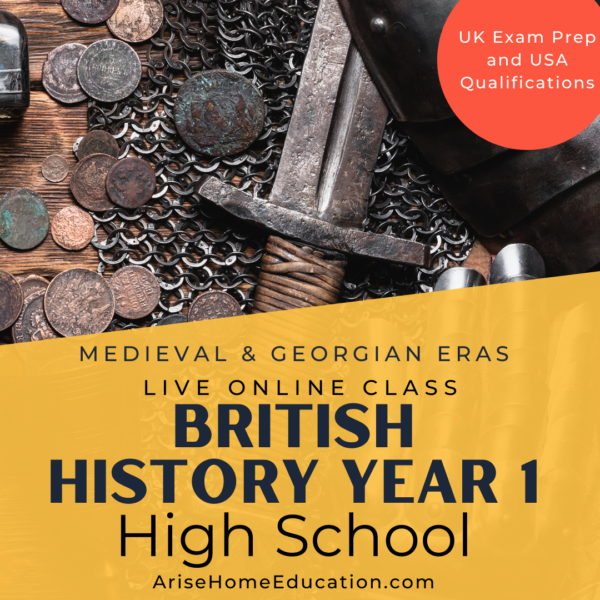


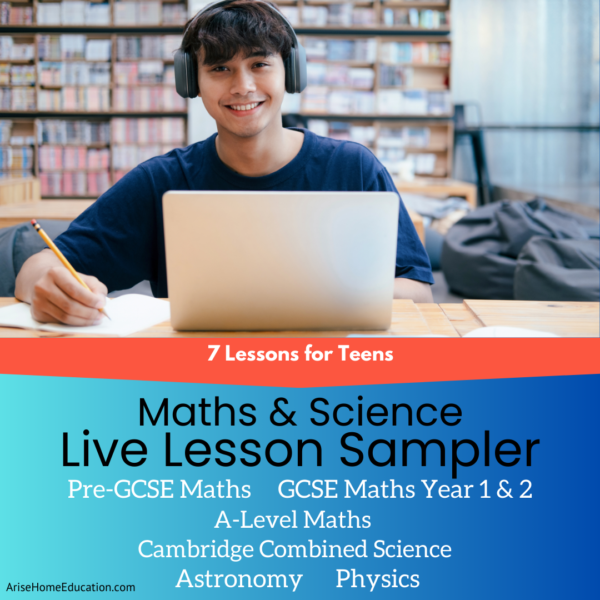

1 thought on “Home Ed Courses for Ages 11-13”
Comments are closed.